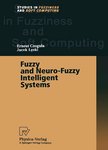版权所有:内蒙古大学图书馆 技术提供:维普资讯• 智图
内蒙古自治区呼和浩特市赛罕区大学西街235号 邮编: 010021

丛 书 名:Studies in Fuzziness and Soft Computing
版本说明:1
I S B N:(纸本) 9783662003893
出 版 社:Physica Heidelberg
出 版 年:1000年
页 数:XVI, 195页
主 题 词:Artificial Intelligence IT in Business
摘 要:Intelligence systems. We perfonn routine tasks on a daily basis, as for example: • recognition of faces of persons (also faces not seen for many years), • identification of dangerous situations during car driving, • deciding to buy or sell stock, • reading hand-written symbols, • discriminating between vines made from Sauvignon Blanc, Syrah or Merlot grapes, and others. Human experts carry out the following: • diagnosing diseases, • localizing faults in electronic circuits, • optimal moves in chess games. It is possible to design artificial systems to replace or duplicate the human expert. There are many possible definitions of intelligence systems. One of them is that: an intelligence system is a system able to make decisions that would be regarded as intelligent ifthey were observed in humans. Intelligence systems adapt themselves using some example situations (inputs of a system) and their correct decisions (system s output). The system after this learning phase can make decisions automatically for future situations. This system can also perfonn tasks difficult or impossible to do for humans, as for example: compression of signals and digital channel equalization.